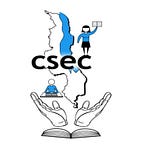DISMANTLING THE STATUS QUO: LESSONS FROM THE 2020 FORM ONE SELECTION
The Education Hub with Benedicto Kondowe
It is undeniable fact that education in the country has been plagued with jarring inequities and inequalities that have escalated due to maladministration, under-investment, and politicization of the sector. The ongoing debate on the 2020 form one selection is but a manifestation of an education system that has been surviving on an oxygen for a decade or so. The decision by government to probe the matter is the first step into not only promoting transparency and objectivity in education but also in firmly unearthing the dynamics around the deplorable performance of some schools as well as the marginal selection.
The quick wit by the government to commission an independent probe, through the Office of the Ombudsman, to audit the current selection is not only commendable but also necessary. However, the decision to reform the system has been long overdue. The management and processing of results lack transparency and accountability as well as objective. They have been crowded by secrecy and other motives for many years. Therefore, fixing the problem should start with an honest appreciation of the ecosystem of examinations.
While the independent audit by the Office of the Ombudsman has the potential to bring facts bare on the current selection, the resultant effect of the findings will dependent on the political will of government to act on the recommendations. Unless government is genuinely committed to remedy the situation, the work by the Office of the Ombudsman may be an academic exercise for more future studies. The EduHub makes this observation acknowledging that the Office of the Ombudsman also recently conducted an investigation in the contentious promotion of primary and secondary schools teachers. In its report entitled “Sacrificed at the Political Altar”, the Office found the suspension of the promotion interviews in favour of direct promotion illegal, and unwise decision by the three controlling officers in the ministry of education, local government and Department for Human Resource Management and Development.
The point is that mere acceptance of the wrong is not enough if the institutions and systems remain unreformed after such revealing investigation report. The matter is even worse if the responsible officials are not made to account for their omissions and commissions.
Perhaps, the pinnacle of all these problems is that there is no provision to rectify the wrong that befalls those who have been disadvantaged by the possibility of an unfair selection or illegal promotions as was the case in 2019. A fair system is one that recognises that all the interest groups have equal rights. Maintaining the status quo of the flawed system signals that who are disadvantaged by either the systems’ or other persons’ wrongs do not have the same rights as those who are wrongly rewarded. For posterity, if we are to address some of these problems, we need to take a bitter pill by subjecting everyone affected to the same measure and later allowing those deserving students to be sieved through.
It is the view of the EduHub that transparency, accountability and objectivity is key to perfecting systems of selecting students. This is the case because whether we like it or not, spaces will remain marginal hence competitive for next few years. What this entails is that only an objective system that is not crowded in secrecy can help to build the confidence in the system of selecting students. Therefore, the multi-year analysis that the ministry intends to undertake through an expert panel will help in interrogating the education ecosystem in Malawi. While inequities and disparities in the selection are more profound, they are manifestation of inequitable inputs into the system such as distribution of teacher, infrastructure and teaching and learning materials.
In this context, a five year analysis of the performance of students, districts, and regions would in our view be incapable of providing sound diagnosis of the problems we are confronted with. The EduHub proposes that this multi-year analysis should date back to 10 years, and for specificity, it should be an analysis of 2000 to 2020 standard eight performance. This will give us an ecosystem that cuts across different regimes to fairly understand the state of play as well as the turn of events.
While the construction of 230 additional secondary schools and the ongoing improvement of the CDSSS is key to increasing access, it is however not the panacea to addressing inequities in education. Therefore, efforts should be made to equalize inputs that go to each school to avoid inequities in the quality of education provided in the country. Government can build on the to-be — established special fund to mobilise more partners into the secondary education sector. As we do this, government must already start planning for a fair exit strategy at form four level so that alternative opportunities are created for those who may not make it to university.
We must understand that secondary education opens up opportunities for most young people to go into further education and go into jobs that helps them achieve materialistic goals. For the majority, no education equals to the vicious cycle of poverty. It also serves as a means to potentially empower girls, raise a person’s economic status and reduce infant mortality rates. Therefore, secondary education must be deliberate and purposeful to serve two intents: it must prepare the young people for either a transition to the workforce with a general education with a broad set of skills that may be of use in a variety of situations; or train them in the skills that are requisite for a post-secondary education opportunities.
